Yemeni mum arrives in US to visit dying son in California
- Published
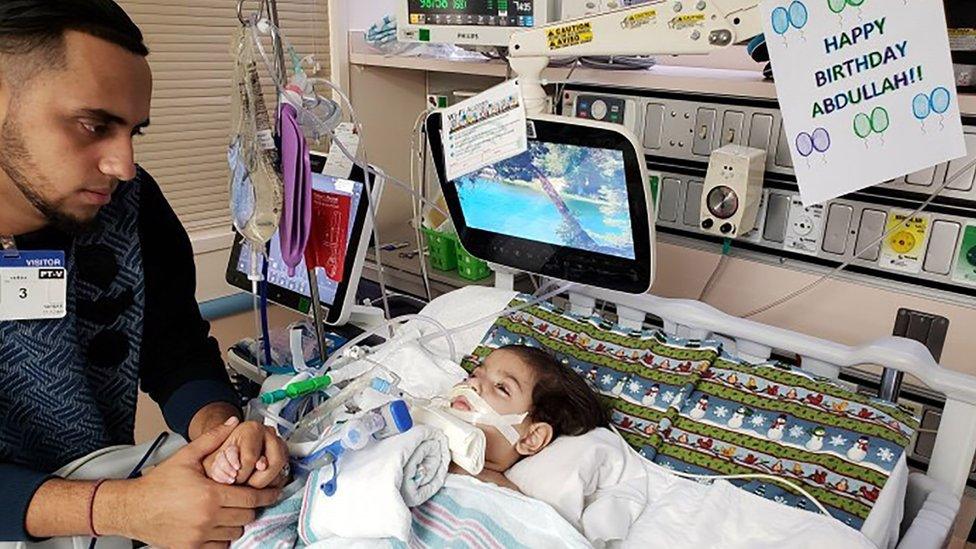
Ali Hassan has been at his son's bedside
The Yemeni mother of a toddler dying in the US has arrived in California to visit him after the Trump administration relaxed its travel ban.
Shaima Swileh, who currently lives in Egypt, was initially prevented from entering America.
Her son, two-year-old Abdullah Hassan, was born with a brain disease that doctors say he will not survive.
Abdullah's father, Ali Hassan, 22, has said the visit will allow the couple to "mourn with dignity".
Mrs Swileh landed at San Francisco International Airport late on Wednesday and was greeted by crowds of well-wishers.
She is now expected to travel to the children's hospital in the city where her son is currently on life support.
The Department of State granted Mrs Swileh permission to enter the US on Tuesday morning, according to the Council on American-Islamic Relations (CAIR), a non-profit advocacy group representing the family.
Allow X content?
This article contains content provided by X. We ask for your permission before anything is loaded, as they may be using cookies and other technologies. You may want to read X’s cookie policy, external and privacy policy, external before accepting. To view this content choose ‘accept and continue’.

Thousands of emails were sent to officials along with tweets and letters from members of Congress in support of the family, according to CAIR.
"We are so relieved that this mother will get to hold and kiss her son one last time," CAIR-Sacramento attorney Saad Sweilem said earlier.
"The public outpouring of support for this family was incredible."
The organisation also rebuked the government for enforcing the travel ban to begin with, saying the toddler "could have been receiving comfort from his mother" for weeks.
What is the US travel ban?
Soon after he took office, US President Donald Trump imposed travel restrictions on mainly majority-Muslim countries.
The executive order went through several versions before being upheld by the US Supreme Court this summer.
It bans nationals of Iran, North Korea, Venezuela, Libya, Somalia, Syria and Yemen from entering the US.
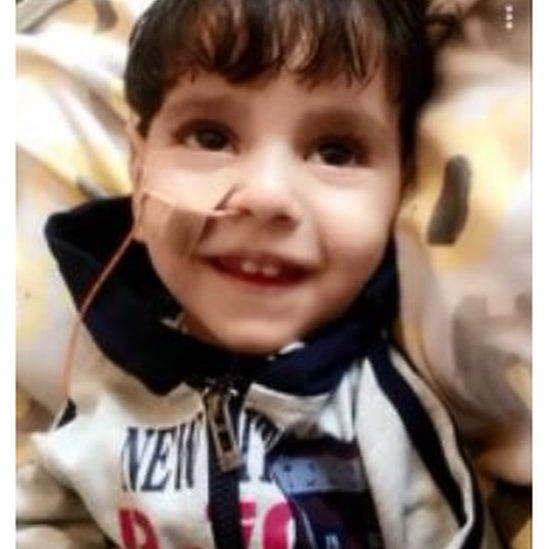
State department spokesperson Robert Palladino suggested his officers' hands were tied by the law but that they tried to do the right thing in all circumstances.
"It is a very sad case and our thoughts go out to this family and this time, but I would also add, that we are governed by the immigration and nationality act," he said.
What is the family's situation?
Abdullah and his father are US citizens but Mrs Swileh is a citizen of Yemen.
The family had moved to Cairo, Egypt, in order to escape civil war in Yemen when Abdullah was eight months old.
Abdullah was diagnosed with hypomyelination - a brain disease affecting his ability to breathe.
About three months ago, Mr Hassan brought his son to California for treatment. When doctors in Oakland informed him Abdullah's condition was terminal, Mrs Swileh applied for a visa to join her husband and son.
The family says they received a rejection letter from the state department, citing the US president's travel ban, and had been fighting for a waiver ever since.
- Published26 June 2018
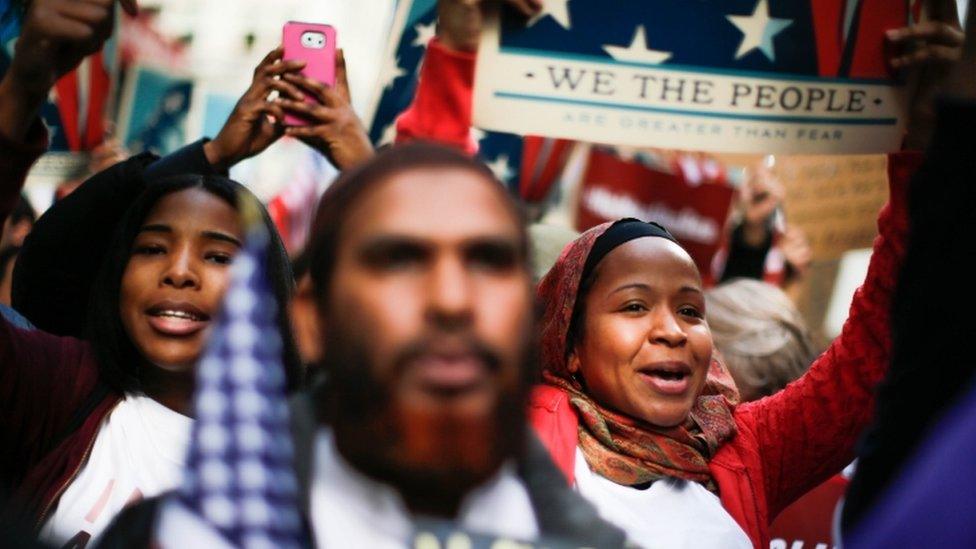
- Published18 December 2018
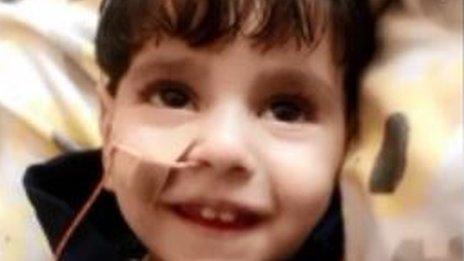
- Published1 February 2017
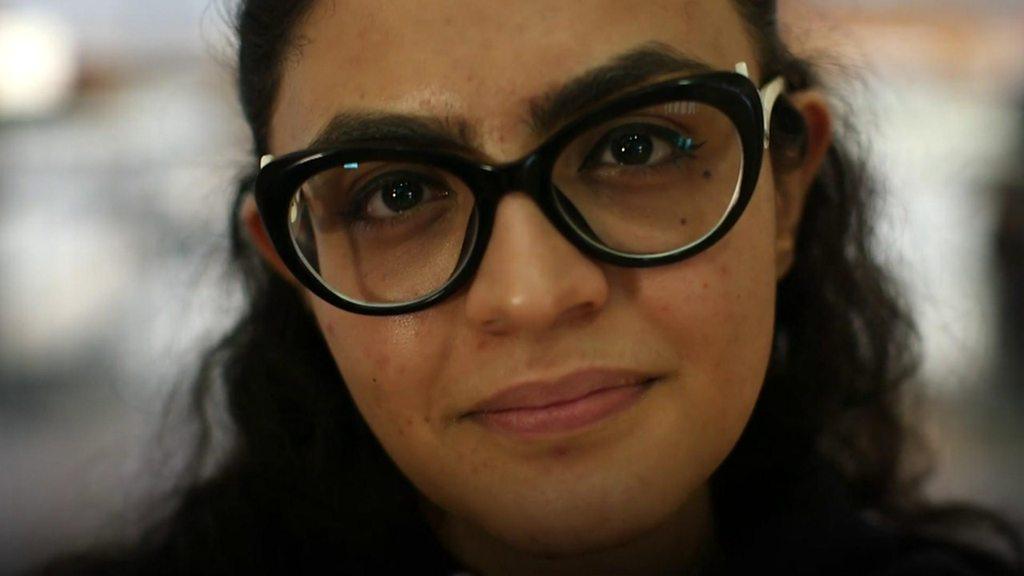
- Published17 December 2018
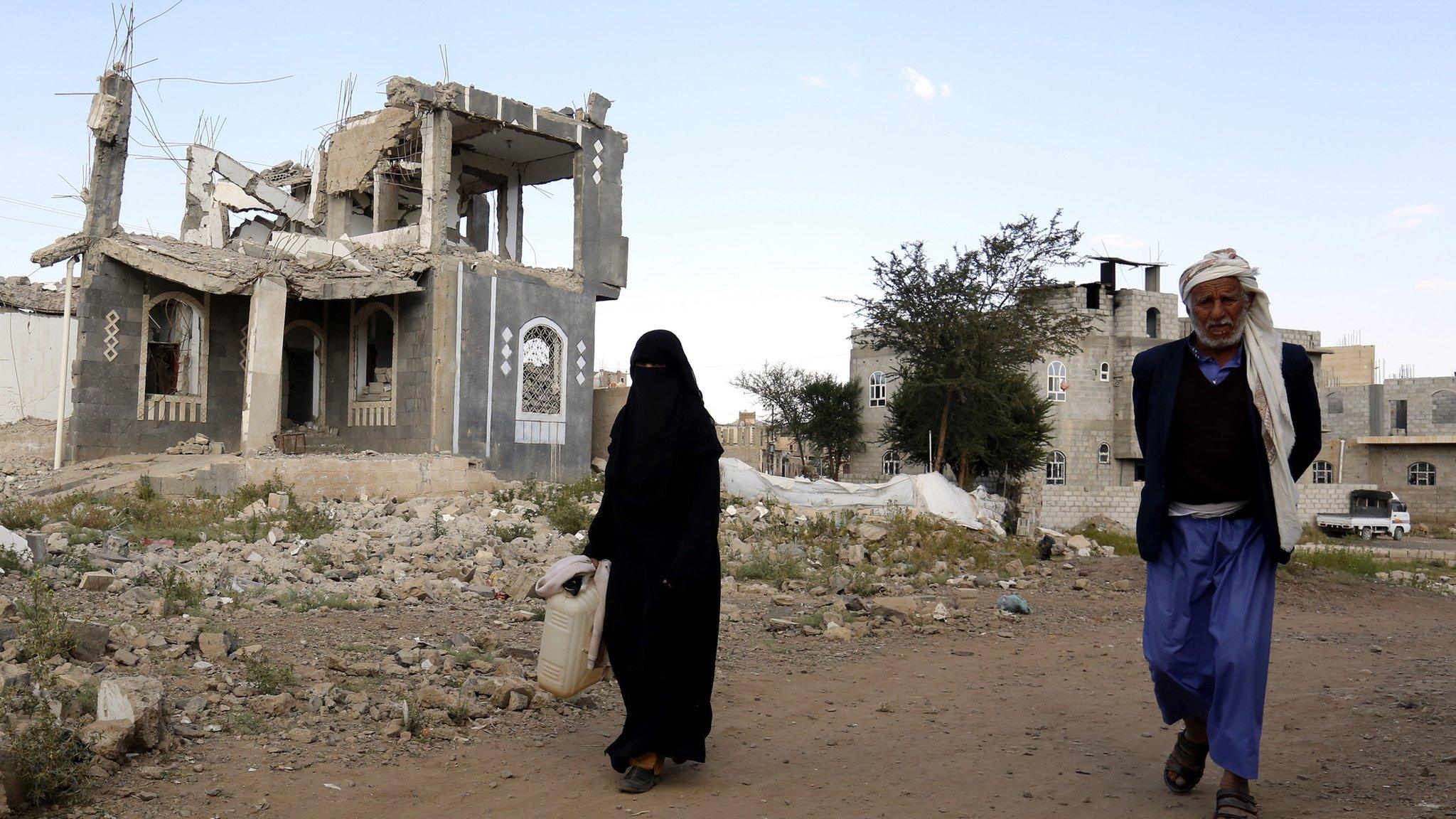
- Published16 December 2018
